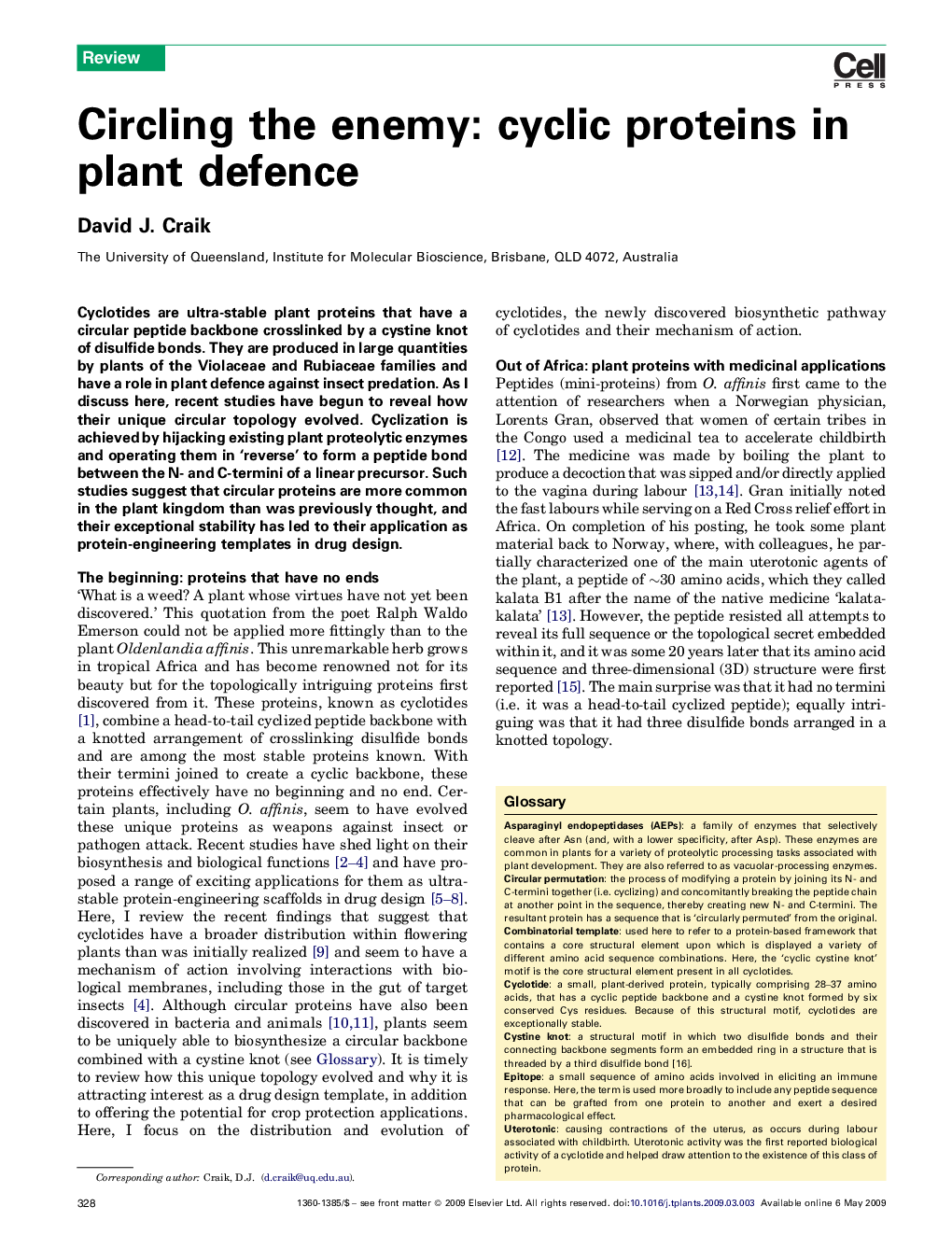| Article ID | Journal | Published Year | Pages | File Type |
|---|---|---|---|---|
| 2826332 | Trends in Plant Science | 2009 | 8 Pages |
Cyclotides are ultra-stable plant proteins that have a circular peptide backbone crosslinked by a cystine knot of disulfide bonds. They are produced in large quantities by plants of the Violaceae and Rubiaceae families and have a role in plant defence against insect predation. As I discuss here, recent studies have begun to reveal how their unique circular topology evolved. Cyclization is achieved by hijacking existing plant proteolytic enzymes and operating them in ‘reverse’ to form a peptide bond between the N- and C-termini of a linear precursor. Such studies suggest that circular proteins are more common in the plant kingdom than was previously thought, and their exceptional stability has led to their application as protein-engineering templates in drug design.
